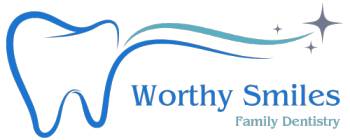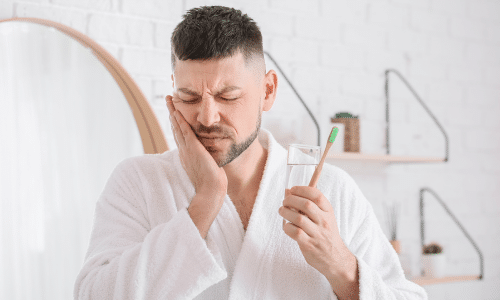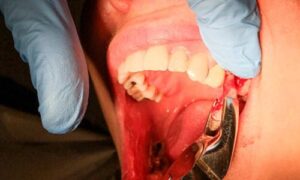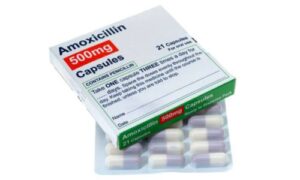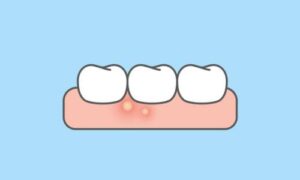Introduction
Taking care of our oral health is essential for our overall well-being. Our teeth play a crucial role in our daily lives, allowing us to bite, chew, and speak properly. However, it can sometimes be challenging to determine if our teeth are unhealthy, especially when problems may not be immediately visible or noticeable. This comprehensive guide will explore various signs and symptoms that indicate unhealthy teeth and provide valuable tips and information on maintaining good oral hygiene.
The Importance of Healthy Teeth
Before delving into the signs of unhealthy teeth, let’s take a moment to understand why maintaining good oral health is crucial. Healthy teeth contribute to an attractive smile and significantly affect our overall health. Neglected oral hygiene can lead to various dental issues, including tooth decay, gum disease, bad breath, and even tooth loss. Poor oral health is also linked to systemic health problems such as cardiovascular disease and diabetes. Therefore, paying attention to our teeth and taking appropriate measures to keep them healthy is imperative.
Signs of Unhealthy Teeth
Tooth Sensitivity
Tooth sensitivity is a common indication of dental problems. If you experience pain or discomfort when consuming hot or cold foods and beverages could be a sign that your teeth are unhealthy. Sensitivity may be caused by various factors, including enamel erosion, tooth decay, or exposed tooth roots. It is advisable to consult a dentist if you consistently experience tooth sensitivity.
By age 8, over half of children (52%) have had a cavity in their primary (baby) teeth. Children from low-income families are twice as likely to have cavities as children from higher-income families. 1 in 4 adults aged 20 to 64 currently has holes. Source
Tooth Discoloration
Discolored teeth can be an indicator of poor oral health. Stains on the teeth may be caused by external factors like consuming staining substances such as coffee, tea, or tobacco, or they may result from internal issues like tooth decay or certain medications. Professional teeth whitening treatments or dental procedures may be necessary to restore the natural color of your teeth.
Persistent Bad Breath
Bad breath, medically known as halitosis, can be embarrassing and may indicate underlying oral health problems. While occasional bad breath is common, persistent and foul-smelling breath could be a sign of gum disease, cavities, or an infection in the mouth. Proper oral hygiene, including regular brushing, flossing, and tongue cleaning, can help combat bad breath. If the problem persists, it is advisable to seek professional dental advice.
Gum Problems
Unhealthy gums often manifest in various ways. It could indicate gum disease if you notice symptoms such as redness, swelling, tenderness, or bleeding while brushing or flossing. Gingivitis, the early stage of gum disease, is reversible with proper oral care. However, if left untreated, it can progress to periodontitis, a more severe condition leading to tooth loss. Regular dental check-ups and diligent oral hygiene are essential to prevent and treat gum problems.
Loose or Missing Teeth
One of the most apparent signs of unhealthy teeth is loose or missing teeth. Tooth loss can occur due to severe tooth decay, gum disease, or dental trauma. If you notice any looseness or gaps in your teeth, it is crucial to consult a dentist promptly. Early intervention can prevent further tooth loss and help restore your oral health.
Jaw Pain or TMJ Disorders
If you experience recurring jaw pain, clicking or popping sounds when opening or closing your mouth, or difficulty in jaw movement, it may indicate temporomandibular joint (TMJ) disorders. These disorders affect the jaw joint and surrounding muscles. TMJ disorders can be caused by various factors, including teeth grinding, jaw misalignment, or arthritis. Seeking professional dental care can help diagnose and manage these conditions.
Dental Abscesses
Dental abscesses are pockets of pus that form due to bacterial infection in the teeth or gums. They can cause severe pain, swelling, and a bitter taste in the mouth. Abscesses can lead to complications if left untreated and may even require tooth extraction. Immediate dental attention is necessary to treat dental abscesses and prevent further infection.
Headaches and Facial Pain
Surprisingly, headaches and facial pain can sometimes be linked to dental problems. Toothaches, infected gums, or misaligned jaws can contribute to persistent headaches or facial pain. If you experience such symptoms without an apparent cause, it is advisable to consult a dentist to rule out any dental issues contributing to your discomfort.
Tips for Maintaining Healthy Teeth
- Brush your teeth at least twice a day using fluoride toothpaste.
- Floss daily to remove plaque and food particles from between your teeth.
- Use a mouthwash to rinse your mouth and kill bacteria.
- Limit your consumption of sugary and acidic foods and beverages.
- Avoid tobacco products, as they can stain teeth and increase the risk of oral health problems.
- Visit your dentist regularly for check-ups and professional cleanings.
- Wear a mouthguard during sports activities to protect your teeth from injury.
- Practice stress management techniques to reduce teeth grinding or clenching.
Frequently Asked Questions (FAQs)
Q: How often should I visit the dentist for Unhealthy Teeth?
Visiting the dentist every six months is recommended for routine check-ups and cleanings. Regular dental visits help detect and prevent potential problems before they become more serious.
Q: Are my teeth unhealthy and affect my overall health?
Yes, unhealthy teeth can have an impact on your overall health. Poor oral health has been associated with various systemic conditions, including cardiovascular disease, diabetes, and respiratory infections.
Q: What can I do to improve my oral hygiene?
To improve your oral hygiene, ensure you brush your teeth at least twice a day, floss daily, use mouthwash, eat a balanced diet, and avoid tobacco products. Additionally, regular dental check-ups are crucial for maintaining good oral health.
Q: Are home remedies effective for treating dental problems?
While home remedies may temporarily relieve some dental issues, consulting a dentist for a proper diagnosis and appropriate treatment is essential. Dentists have the expertise and tools to address dental problems effectively.
Q: Can I prevent tooth decay?
Yes, tooth decay can be prevented through good oral hygiene practices. Brushing your teeth with fluoride toothpaste, flossing, limiting sugary and acidic foods, and visiting your dentist regularly for check-ups and cleanings can help prevent tooth decay.
Q: Are teeth whitening safe?
Teeth whitening, when performed by a dental professional using approved methods, is generally safe. However, it is essential to consult a dentist before undergoing any whitening treatment to ensure it suits your dental health.
Conclusion
Maintaining healthy teeth is crucial for our overall well-being. By being aware of the signs of unhealthy teeth and practicing good oral hygiene, we can prevent dental problems and enjoy a beautiful and functional smile. Remember to brush and floss daily, visit your dentist regularly, and seek professional advice if you notice any concerning symptoms. Take charge of your oral health and preserve your smile for a lifetime.
